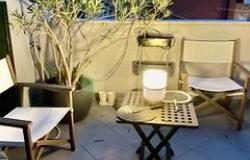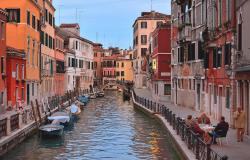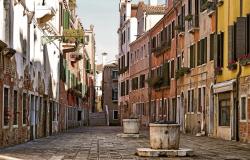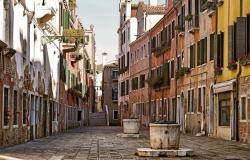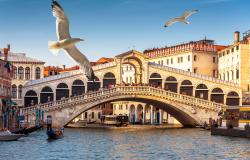 A system of tidal barriers called Moses won't save Venice, Mayor Massimo Cacciari said Monday.
A system of tidal barriers called Moses won't save Venice, Mayor Massimo Cacciari said Monday.
Sea levels are set to rise too high because of global warming, Cacciari said, making the system under construction "useless".
"On the basis of the precautionary principle we have to assume the most pessimistic figure, 50-60cm above the average sea level in the next few decades," Cacciari said.
Therefore, he said, Moses was irrelevant because "you're still going to be too low".
After 30 years of debate and testing, the Moses project was inaugurated in May 2003. Despite countless polemics and delays, about a third of the work has now been done and completion is scheduled for 2011.
The Italian government has been resisting calls to scrap it.
Cacciari, a long-time foe of the project, is leading a broad front of environmentalists and climatologists who think the worst-case scenario for Venice means Moses is already obsolete.
At a weekend conference on Venice's future under current climate-change models, Cacciari mustered the prestigious support of Nobel-prize winning physicist Carlo Rubbia.
On Monday, Italian Environment Minister Alfonso Pecoraro Scanio backed Cacciari, dismissing Moses as "old".
Rules of cabinet decision-making meant he had to formally back the government's recent decision to press ahead with the project but he would be working to have it "reviewed" in the light of the latest data, he said.
Last month the United Nations' Intergovernmental Panel on Climate Change (IPCC) said Venice would be under water within decades if current trends continue.
Flooding is already a constant problem for Venice and the picturesque St Mark's Square, a must on Italy's tourist trail, is covered with water dozens of times every year.
As well as Moses, Italy is looking at other ways to keep Venice above water.
A company based in Forli', Romagna, said Saturday it could raise buildings by "at least a metre" with the help of hydraulic pumps.
The Soles firm said it was looking for a Venice palazzo to try out the system.
Some candidates near St Mark's had been identified, it said.
The system would be part of a general ground-raising effort called RiAlto.
It would not be an alternative to Moses, but "complementary," Soles said.

